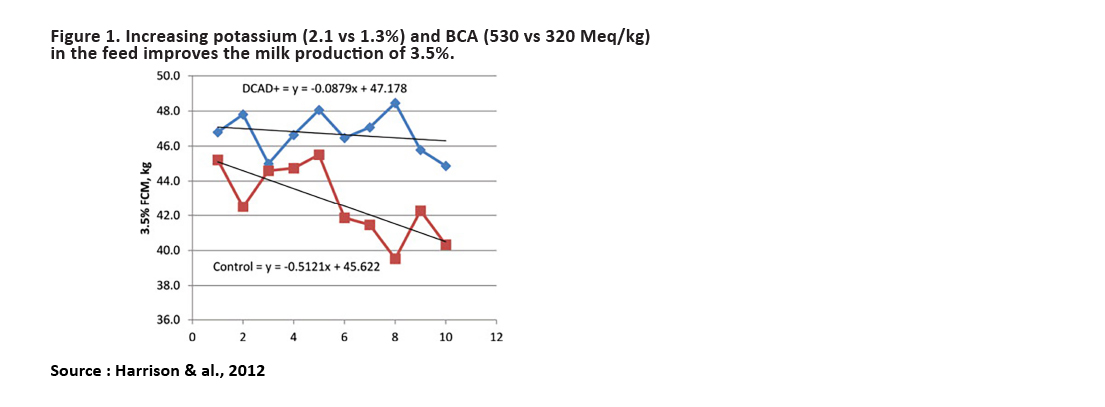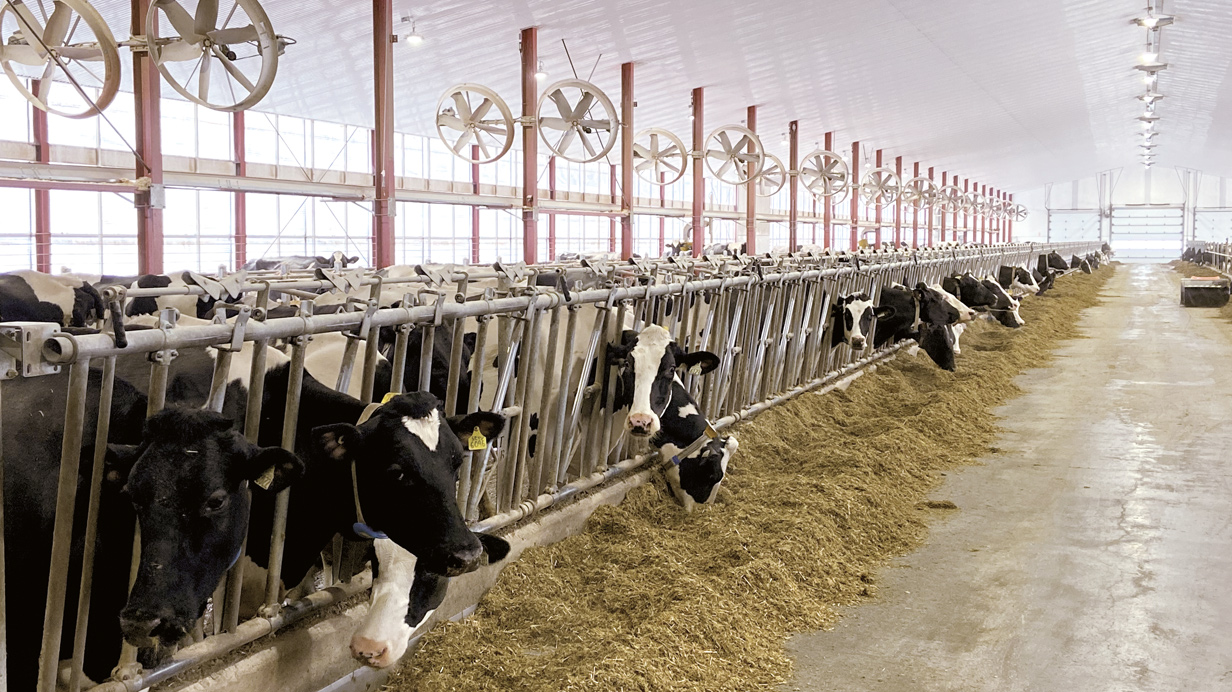7 ways to minimize the impact of heat stress on milk production
According to statistics from the Fédération des producteurs de lait du Québec, the fat content of milk decreases every summer. And in recent years, heat stress episodes have increased. Although the extent of this decline varies from herd to herd, there are strategies to minimize the impact of heat on milk production.
1. Good ventilation and fresh water
Proper ventilation, increased in summer, remains a priority to minimize the impact of heat on milk and milk component production, as does access to fresh, high-quality water and comfortable stalls.
2. Buffers
When lactation begins, cows need more buffers in their rumen and blood to maintain a good acid-base balance (pH). That’s why the mineral Synchro STB, which is a combination of buffering and alkalinizing agents, is recommended. In addition to increasing the dietary cation-anion difference (DCAD) of rations, it effectively supports rumen pH, which promotes better digestion of fibre and production of milk fat precursors.
Option K feeds and the Synchro STB K mineral increase the DCAD of rations and support rumen pH. These products are specific sources of potassium that have a positive effect on the bio-hydrogenation of fatty acids in the rumen.
This mechanism results in a higher milk fat content and more corrected milk (see Figure 1). The lower the DCAD and amount of potassium in your ration (low-K forages, high proportion of corn silage), the better the response should be, especially during summer.

3. Saturated fatty acids for dairy cows
These products contain mainly C16:0 saturated fatty acids, which promote milk fat synthesis. These fatty acids are absorbed as is and have little interference on rumen fibre fermentation. Their primary function is to increase milk fat content, resulting in an increase in fat-corrected milk.
4. Products in the form of calcium salts
Other products are available as calcium salts. These are a combination of saturated and unsaturated fatty acids that are rumen inert, meaning that they have no effect on rumen fermentation. In general, calcium salts increase milk and fat-corrected milk production and sometimes also fat content. However, if the rumen pH drops sufficiently, the breakdown of salts could interfere with milk fat synthesis.
5. The addition of methionine
Methionine is a limiting amino acid for rumen micro-organisms.
Trials have shown that rumen-available methionine supplementation improves the synthesis of milk fat precursors, resulting in increased milk fat content.
6. B-complex vitamins
Bionique contains vitamins A and E and several B-complex vitamins, all of which are protected from rumen degradation. This vitamin complex affects the energy and protein metabolism of cows. When added to rations, milk production and, in some cases, fat-corrected milk and fat content, are usually increased.
7. Digestible forages
Cows produce heat when digesting fibre in forages, which affects their dry matter intake (DMI). Therefore, if possible, cows should be offered forages with less fibre and/or better fibre digestibility (NDFd).
Similarly, poorly stored forage that heats up on recovery or contains mold will affect digestibility and DMI. For example, forage containing just 5 % mold reduces DMI by 7 % and fibre digestibility by 11 %.


